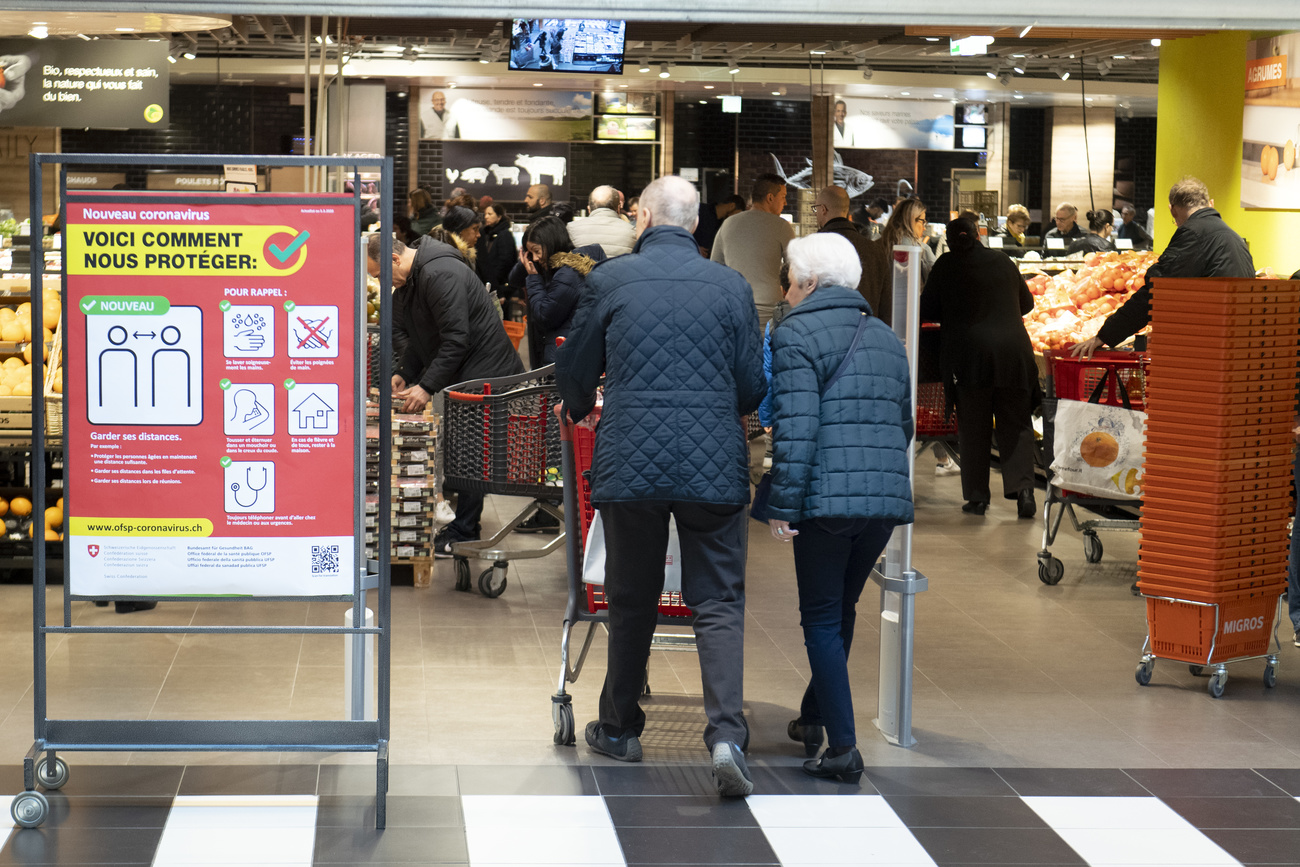
Swiss spent record amount on food in 2020

Consumers spent 11.3% more on food and beverages in brick-and-mortar shops last year than they did in 2019, helping the food retail trade to pull in a record turnover of nearly CHF30 billion ($33.7 billion).
In total, the average household spent CHF7,680 on comestibles, according to figures released on Thursday by the Federal Office for Agriculture (FOAG), which did not include online retail in its report.
Consumers used over a third of their food budget to buy meat but spent significantly less (14%) on fruits and vegetables. More than one in 10 Swiss francs was spent on organic products.
The figures also revealed differences in spending habits among households. Urban dwellers bought less meat and milk than those living in rural areas. Families with children used the biggest share of their budget for meat products, while those without children spent most on vegetables and alcoholic drinks.
The Swiss showed a preference for traditional retailers such as Coop and Migros – accounting for nearly 77% of consumer spending on food – over discount shops (17%) and specialised outlets such as bakeries, green grocers and gas stations (6%). According to the FOAG, the retail trade is the biggest distribution channel for Swiss agricultural products.
Switzerland consistently ranks among the most expensive countries in Europe for consumer goods, particularly food and beverages. A study of online consumer banking data in April 2020 revealed that, as a result of the lockdown imposed to limit the spread of Covid-19, Swiss consumers were spending significantly less on clothing and cosmetics and more on food.

In compliance with the JTI standards
More: SWI swissinfo.ch certified by the Journalism Trust Initiative


















![The four-metre-long painting "Sonntag der Bergbauern" [Sunday of the Mountain Farmers, 1923-24/26] had to be removed by a crane from the German Chancellery in Berlin for the exhibition in Bern.](https://www.swissinfo.ch/content/wp-content/uploads/sites/13/2025/12/01_Pressebild_KirchnerxKirchner.jpg?ver=1ea8acae)










You can find an overview of ongoing debates with our journalists here . Please join us!
If you want to start a conversation about a topic raised in this article or want to report factual errors, email us at english@swissinfo.ch.